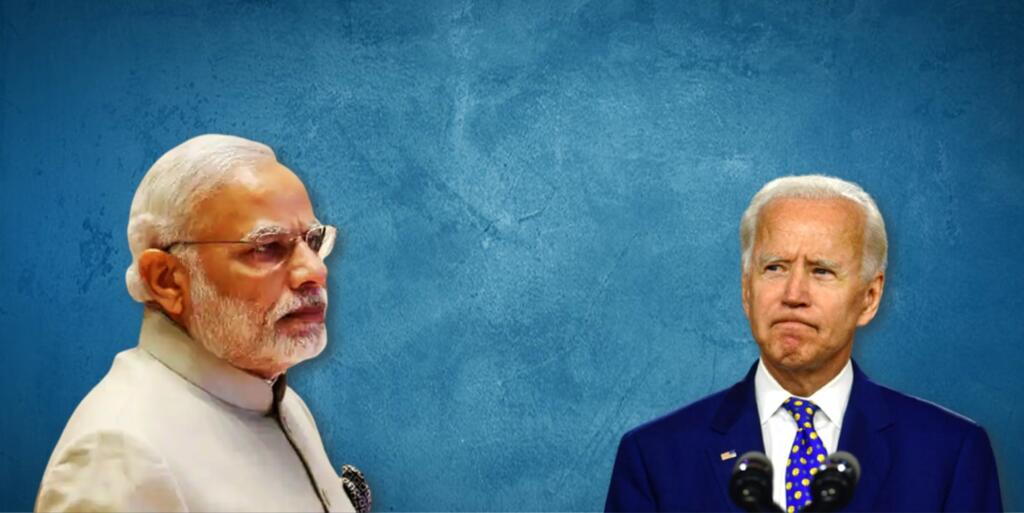TPF meeting: Total GDP of the United States is nearly 20 lakh crores more than that of India. The distance between both countries is more than 13,000 km. The USA is the biggest food exporter of the world. It is also the biggest oil producer of the world. All these accolades have not proved enough for the USA in getting hold of India’s economic wings.
TPF meeting in Washington
India-US Trade Policy Forum (TPF) is holding a meeting on January 11. According to the Commerce Ministry, the meeting will be held in Washington. Commerce Minister Piyush Goyal has already arrived to participate in the 13th edition of the deliberations. First leg of the tour is in New York. In New York, he is interacting with CEOs of reputed multinational enterprises and participating in community events. Additionally, he is also having roundtable meetings with business leaders and think tanks.
In the second leg of the visit, Shri Goyal will put forth India’s point of view on five focus groups underlined by TPF meeting. These include agriculture, investment, innovation and creativity (intellectual property rights), services, and tariff and non-tariff barriers. US trade representative Katherine Tai will be his co-chair.
Highlighting the importance of these meetings in a press release, the Commerce Ministry said, “The two countries are also collaborating under the QUAD, I2U2 (India-Israel/ UAE-USA) and IPEF (Indo-Pacific Economic Framework). Regular exchanges at the leadership-level have been an integral element of the expanding bilateral engagement. The outcomes emerging from these visits have been instrumental in further strengthening the multifaceted ties between the two countries.”
Role of TPF in India-US trade
Indeed, TPF has potential to change the face of trade between India and the USA. It was established way back in 2005 and has been an instrumental forum for India to make Americans understand our side of problems. Before TPF along with a few other mini-forums became fully active, India found it hard to get its voice heard in American economic circles.
The reason is simple. We were not punching according to our weight as the fear of backlash from opposition kept us in check. Additionally, our market was big, but consumption was not, which led Americans to focus more towards the Chinese.
Owing largely to TPF-like forums, the Indian market has started to push its competitors. Resultantly, trade between the US and India has increased. In 2022, the US pushed China into second position to become the largest trading partner of India. Commerce Minister Goyal himself estimates that by 2030, India-US trade has the capability to clock more than $ half a trillion. For many, it may sound astounding, but the United States is one of the few large trading partners we enjoy a trade surplus with.
Americans do not like that. Conservatives in America have been largely critical of it. In 2019, the Trump administration had decided to terminate India’s designation as a beneficiary of its Generalised System of Preferences (GSP). A generalised System of Preferences (GSP) is a preferential trade arrangement extended by developed countries to developing countries. With this, it became tough for Indian exports worth Rs 40,000 crore to enter the American market.
Also read: From ‘Love letter to Pakistan’ to a harsh call to the USA, India has come a long way
India is punching according to its weight
On its part, the US was also jolted by India when it pulled out of Regional Comprehensive Economic partnership. India also kicked off re-negotiation with the European Union for a free trade agreement. Trump also wanted a mini-trade deal with India. Under the deal, India wanted GSP to restart while Americans wanted Indian markets for farm and manufacturing products, dairy items and medical devices. The deal did not see the light of the day and a lot of trade problems persisted till date.
One of the big problems that Americans are facing is India’s initiative to have greater control over its sovereign data. Data is the new oil and Data Protection bill on the horizon is expected to bring rigorous rules in favour of privacy of General populace.
To add insult to injury, India is also on its way to bring a new digital competition act. Even before its introduction in Parliament, the proposed bill has rattled the big tech companies. The act will put an end to anti-competitive and unfair business practice by these companies. No wonder, the American Industry group representing GAAMA companies is not happy and has termed it ‘absolute and regressive’.
The fact is that, the bill will provide impetus to local companies. Something which America has been doing by shunning GSP status from India. These issues are going to dominate the upcoming meeting. India is going with an uptight attitude in it, something which has not traditionally been a norm.
Support TFI:
Support us to strengthen the ‘Right’ ideology of cultural nationalism by purchasing the best quality garments from TFI-STORE.COM
